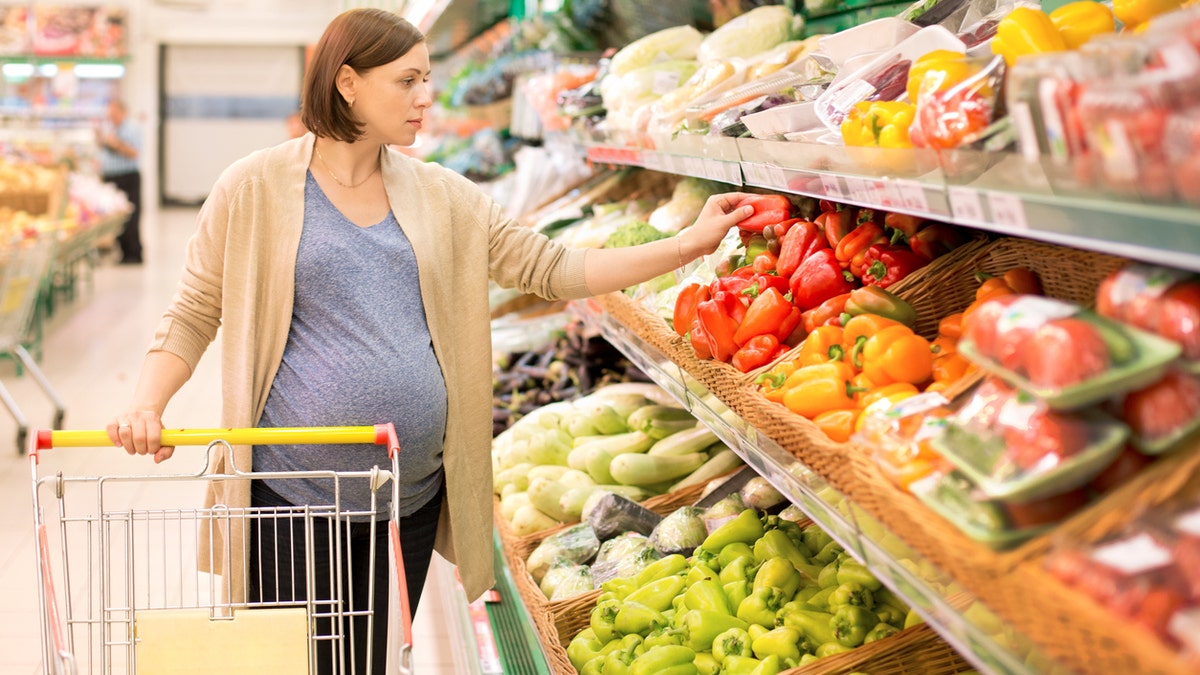6 foods to eat (and avoid) if you want to get pregnant
{{#rendered}} {{/rendered}}
A vegetarian diet can be a great starting point for pregnancy as long as certain nutrient requirements are met, and sometimes that means careful planning. (iStock)
Yes, age and your genes are influential when it comes to babymaking, two big fertility factors that are out of your control. But your diet plays a role too, and can help or hamper not only the health of your eggs, but your chances of fertilization and implantation too (same goes for his swimmers).
“Though there's no ‘magic superfood’ for fertility, eating a balanced, nutrient-dense diet filled with fertility-fueling foods can also help make you feel more in control of a situation that is so out of your control,” says Elizabeth Shaw, M.S., R.D.N., C.L.T., a San Diego-based dietitian and co-author of Fertility Foods. “That alone can help decrease stress, an important culprit in infertility."
Granted, nutrition is only once piece of the pregnancy puzzle, and research is still preliminary, but the right conception-friendly foods can up your odds. Here’s what to eat to help you conceive:
{{#rendered}} {{/rendered}}Full-fat dairy
Good news: watery skim milk is out! Research has shown that women who consumed one or more servings of whole milk products a day (think whole milk, full-fat cottage cheese, full-fat yogurt), were 27 percent less likely to experience ovulatory infertility, while women who ate two or more servings of low-fat dairy (including low-fat yogurt and frozen yogurt) a day were almost twice as likely to fail to ovulate. (Here's why grass-fed dairy is better for you.)
Bonus: Milk is fortified with vitamin D, a tough-to-get nutrient vital for the production of sex hormones.
{{#rendered}} {{/rendered}}Slow carbs
Carbs are a double-edged sword when it comes to fertility. Insulin-spiking cookies, cakes, white bread, white rice, and sugary drinks can throw hormones and ovulation out of whack. On the flipside, high-fiber carbohydrates that take longer to digest can improve fertility. In one study, women whose diets had the highest glycemic load were 92 percent more likely to have ovulatory infertility than those with the lowest glycemic load. “Some of the best examples of whole grains I recommend in a fertility fueling diet are quinoa, 100 percent whole wheat grains, amaranth and couscous,” says Shaw.
Bonus: Research says cinnamon can balance blood sugars and improve insulin-sensitivity in women with polycystic ovary syndrome, so sprinkle it on your oatmeal.
{{#rendered}} {{/rendered}}Legumes, beans, and lentils
Put that hunky beef burger or cut of pork aside and try adding more legumes, beans and lentils to your diet. “Research suggests that plant-based proteins are beneficial to enhance fertility,” says Shaw. Not only do plant sources of protein save you calories (a healthy body mass index can also boost your chances of conceiving), research has shown that a high intake of animal protein can inversely affect fertilization. If you do eat meat, aim to make it organic and grass-fed when possible to boost your intake of health-promoting omega-3s.
Bonus: Beans are also a good source of iron, a necessary ingredient for normal ovulation.
{{#rendered}} {{/rendered}}Nuts and seeds
Peanuts, sesame seeds, and pistachios get baby making props. That’s because they contain Coenzyme Q10 (CoQ10), an antioxidant that plays a direct role in energy production in every cell in our body, including eggs. “It’s believed that the ability of the eggs to make energy gets worse as women get older and this may be related to a decrease in CoQ10 in the aging egg,” says fertility specialist Kristin Bendikson, M.D., assistant professor of obstetrics and gynecology in the Division of Reproductive Endocrinology and Infertility at the USC Keck School of Medicine. Preliminary studies show that the antioxidant can improve sperm mobility and egg quality, and may even reverse age-related reproductive decline. Other food sources include meat, fish, and canola oil.
Bonus: Nuts and seeds are rich in zinc, a mineral essential not only for sperm production, but normal ovulation.
{{#rendered}} {{/rendered}}Wild-caught salmon
Vitamin D gets a lot of hype for keeping bones healthy, but did you know not getting enough is linked to infertility—and salmon is one of the best food sources. Research shows that low levels of vitamin D can impair of women’s chances of conceiving through in vitro fertilization (IVF). What’s more, a study by The University of North Carolina found that getting more vitamin D could boost mood and reproduction. “It is thought that vitamin D may have a role in preparing the uterus for the implantation of the embryo,” says Bendikson, who adds that low vitamin D is also associated with pregnancy complications like gestational hypertension and diabetes.
Bonus: Salmon is also high in omega 3 fatty acids, a healthy fat that can promote blood flow to the uterus for improved fertility.
{{#rendered}} {{/rendered}}Skip the trans fats!
Pass on packaged donuts, non-dairy creamer, and supermarket cinnamon rolls made with shortening or partially hydrogenated vegetable oils. These trans-fat transgressors trigger an inflammatory response in your body that’s been linked to endometriosis and infertility, affecting ovulation, hormone production, and implantation. One study found that each 2 percent increase in consumption of trans fats in place of carbs or healthy monounsaturated fats (think avocado) was associated with a 73 percent increased risk for ovulatory infertility.
“Think of it as your eggs swimming in inflammatory soup,” says Jaime Knopman, M.D., a board-certified reproductive endocrinologist, director of fertility preservation for the Colorado Center for Reproductive Medicine, New York and co-founder of Truly-MD.com. “The sperm may have trouble fertilizing, and then once you have an embryo, maybe it’s not going to make its way to the uterus.”
{{#rendered}} {{/rendered}}This article first appeared on Rodale.
